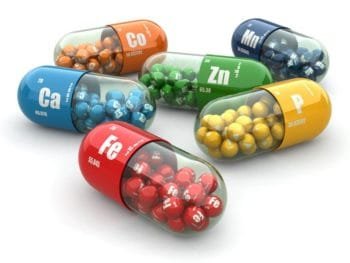How to Prepare for a Healthy Pregnancy
If you’re thinking about getting pregnant or actively trying to conceive, it’s never too early to embark on the journey of preparing for a healthy pregnancy. Preconception health care focuses on steps you can take before and between pregnancies to enhance the likelihood of having a healthy baby. The timeline for getting your body ready for pregnancy may vary from a few months to longer, depending on individual circumstances. Ideally, setting aside at least three months to prioritize your health and prepare your body for conception is recommended. A healthier you translate to improved chances of conceiving and carrying a pregnancy to full term. Whether you’re a first-time parent or have experience with multiple pregnancies, the following guidelines are crucial to help you prepare for the healthiest possible pregnancy.
See a Doctor before Trying to Conceive
Scheduling a “pre-pregnancy check-up” with your doctor is highly important. During this visit, your doctor will inquire about factors that could impact your pregnancy. These inquiries may encompass your dietary habits, lifestyle, birth control methods, prior pregnancies, medication use, and any family history of diseases or medical conditions.
Several essential steps, best undertaken before attempting pregnancy, can contribute to the health and well-being of both you and your future baby: 
- Medications and Herbal Drugs: Discuss any medications or herbal remedies you are currently taking with your doctor. Determine if any adjustments are necessary for your specific situation.
- Vaccinations: Evaluate whether you are up-to-date on your vaccinations, ensuring you are adequately protected against preventable diseases.
- Folic Acid Supplementation: Start taking a multivitamin containing folic acid (also known as folate), which is vital for a healthy pregnancy.
- Dietary Guidance: Familiarize yourself with foods to avoid and those that promote optimal health during pregnancy.
- Substance Use: Cease smoking, alcohol consumption, or the use of illegal drugs, as they can negatively impact pregnancy.
- Health Assessment: Understand the potential risks associated with medical conditions and family history. Your doctor can provide guidance on managing these factors effectively.
- Sexually Transmitted Infections: Address the possibility of sexually transmitted diseases and their implications for you and your partner.
- Environmental Exposure: Discuss any potential exposure to harmful substances in your home or workplace.
- Healthy Weight: Strive to attain and maintain a healthy body weight, as it significantly influences your overall well-being during pregnancy.
Here’s an in-depth look at each of the crucial preconception considerations:
Medications and Supplements
Ask if the medicines you take are safe: If you’re currently taking any medications, supplements, or herbal remedies, consult your healthcare provider to determine their safety during pregnancy or while trying to conceive. Planning ahead is essential, as certain drugs may linger in your system, necessitating a switch to safer alternatives for your baby’s well-being. It’s especially pertinent for individuals on medications for conditions like seizures, high blood pressure, lupus, and rheumatoid arthritis, as discontinuing such medications abruptly can pose risks to your health.
Check if you need any vaccines: Ensure that you are up-to-date on your vaccinations, as this is critical for women contemplating pregnancy. Vaccines against diseases such as measles, mumps, rubella, tetanus, diphtheria, polio, chickenpox (varicella), and possibly hepatitis are essential. Although many received these vaccinations during childhood, verifying your immunization status is prudent. Failing to do so could leave you vulnerable to diseases that might jeopardize your health and that of your baby. Additionally, an annual flu shot is recommended for all women.
Some vaccines cannot be administered during pregnancy or in the month leading up to conception, so getting vaccinated more than a month before attempting pregnancy is advisable.
Start taking a multivitamin: To boost the chances of a healthy pregnancy, women aspiring to become pregnant should consume a daily “prenatal” multivitamin containing at least 400 micrograms of folic acid. This nutrient is particularly crucial for preventing certain birth defects. Initiating multivitamin intake at least one month before actively trying to conceive is advised. Waiting until pregnancy is confirmed is insufficient, as your baby’s development will have already commenced.
Maintain caution not to exceed recommended vitamin doses during pregnancy, especially for vitamin A. Consult your doctor to verify the safety of the chosen vitamins for both you and your baby.
Dietary Habits
Check your diet: Some foods pose risks for women who are pregnant or attempting to conceive. If you’re actively trying to get pregnant, avoid raw or undercooked meat. Additionally, steer clear of shark, swordfish, king mackerel, or tilefish due to their potentially high mercury content. Seek guidance from your healthcare provider regarding the safety of consuming fish caught in local rivers and lakes. To limit caffeine intake, restrict coffee, tea, or cola consumption to no more than 1 or 2 cups per day. Strive for a balanced diet rich in fruits, vegetables, and whole grains, and always wash your fruits and vegetables before consumption.
Stop smoking, drinking alcohol, or taking illegal drugs: If you smoke, consume alcohol, or use illicit drugs, it is paramount that you cease these behaviors immediately. Even occasional and minimal usage of these substances during pregnancy can harm your baby. Quitting upon discovering your pregnancy is not sufficient, as your baby’s development will have already commenced, and these substances can cause damage. If you require assistance with quitting, consult your doctor or nurse, as effective treatments are available.
Additionally, it’s crucial for your partner to discontinue smoking and illicit drug use while minimizing alcohol consumption.
Discuss Potential Risks
Discuss with your healthcare provider regarding any risks that may affect both you and your baby.
Existing medical conditions: If you have existing medical conditions, they could pose challenges during pregnancy. Women with certain medical ailments, including diabetes, high blood pressure, asthma, thyroid disorders, seizure conditions, and others, should collaborate with their healthcare professionals to ensure their conditions are well managed before conceiving. Poorly controlled medical conditions can lead to complications for both the mother and the baby during pregnancy.
Family Medical History: If you or your partner have a family history of medical conditions that could be inherited by your baby, it’s advisable to consider genetic counseling. Genetic counseling provides insights into the likelihood of your baby inheriting these conditions and explores potential options if any problems arise. Conditions that might necessitate genetic counseling include cystic fibrosis and muscular dystrophy.
Sexually Transmitted Infections: Infections transmitted through sexual contact, commonly referred to as “sexually transmitted diseases” or “STDs,” can hinder fertility and pose risks to an unborn baby. If you suspect that you might have contracted one of these infections, notify your healthcare provider. They can conduct tests for the infection and administer appropriate treatment, particularly in cases involving a risk of HIV infection.
Check your Surroundings for Environmental Hazards
Homes and workplaces can sometimes harbor chemicals or substances detrimental to an unborn child. Managing these substances may be intricate and time-consuming, necessitating advance planning. For example, homes constructed before 1978 often contain lead-based paint on walls or woodwork, with lead chips or dust potentially posing harm to a developing baby. Consult your healthcare provider or nurse for guidance on handling harmful substances in your environment.
Achieving a Healthy Weight
Focus on weight management: Attaining a healthy weight is crucial for both conception and a smooth pregnancy journey. Women who are either underweight or overweight may encounter difficulties conceiving and experience complications during pregnancy. Prioritize reaching an optimal weight before embarking on your pregnancy journey. Utilize a BMI calculator to assess your current status and set achievable goals.
Learn Family Health History
Gathering comprehensive information about your family’s health history is invaluable for your child’s well-being. Certain health conditions within your extended family, such as heart defects or sickle cell disease, may potentially impact your child’s health. Sharing this family health history with your doctor is essential. Depending on your family’s medical background, your doctor might recommend genetic counseling. Other reasons for seeking genetic counseling include recurrent miscarriages due to chromosomal abnormalities, infant fatalities, fertility issues, or a prior pregnancy affected by a genetic condition or birth defect.
Prioritize Mental Well-being
Mental health encompasses our emotional well-being, thoughts, and behaviors as we navigate life’s challenges. Feeling content with your life and valuing yourself are pivotal components of mental well-being. Occasional feelings of worry, sadness, anxiety, or stress are normal. However, if these emotions persist and disrupt your daily life, seeking help is imperative. Engage in a conversation with your doctor regarding your emotions and potential treatment options to ensure optimal mental health.

Have a Healthy Pregnancy!
Once pregnancy is confirmed, it’s crucial to maintain your newfound healthy habits and adhere to regular prenatal care appointments with your doctor. Utilizing a pregnancy calculator can help you stay informed about important milestones throughout your pregnancy journey.










